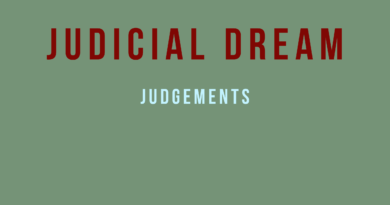SEC 138 NEGO
M/s. Kalamani Tex vs. P. Balasubramanian, SC 2021
The trial Court disbelieved the respondent’s claim and observed that he had failed to establish a legally enforceable liability on the date of issue of cheque. The Court held that since the basic ingredients of an offence under Section 138 of the NIA were not satisfied, the complaint was liable to be dismissed.
Discontented with the order of the trial Court, the respondent preferred a criminal appeal before the High Court, wherein, the Court noted that Appellant No.2 had admitted his signatures on both the Cheque and the Deed of Undertaking and had thus acknowledged the appellants’ liability. The High Court therefore vide impugned judgment allowed the criminal appeal and convicted both the appellants under Section 138 of NIA.
SC held that the trial Court completely overlooked the provisions and failed to appreciate the statutory presumption drawn under Section 118 and Section 139 of NIA. The Statute mandates that once the signature(s) of an accused on the cheque / negotiable instrument are established, then these ‘reverse onus’ clauses become operative. In such a situation, the obligation shifts upon the accused to discharge the presumption imposed upon him.
Once the 2nd Appellant had admitted his signatures on the cheque and the Deed, the trial Court ought to have presumed that the cheque was issued as consideration for a legally enforceable debt. The trial Court fell in error when it called upon the Complainant- Respondent to explain the circumstances under which the appellants were liable to pay. Such approach of the trial Court was directly in the teeth of the established legal position as discussed above, and amounts to a patent error of law.
The court further observed that even if we take the arguments raised by the appellants at face value that only a blank cheque and signed blank stamp papers were given to the respondent , yet the statutory presumption cannot be obliterated. It is useful to cite Bir Singh v. Mukesh Kumar, where this court held that: “Even a blank cheque leaf, voluntarily signed and handed over by the accused, which is towards some payment, would attract presumption under Section 139 of the Negotiable Instruments Act, in the absence of any cogent evidence to show that the cheque was not issued in discharge of a debt.”



